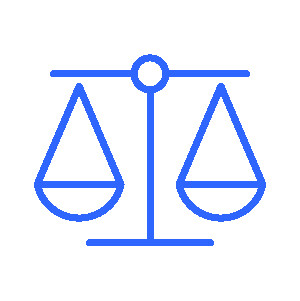Making the decision about
Let's walk through the pros (and cons) of claiming benefits early.

5 reasons why you should take Social Security early
One of the most compelling reasons to take Social Security early is that it can provide immediate financial relief if you need it. However, it's important to compare the short-term advantages versus the potential long-term impact of reducing your benefits, especially when
1. Provides income now
Tapping into Social Security early gives you access to a guaranteed source of income sooner, enabling you to pay for day-to-day expenses, have flexibility to enjoy your retirement and lifestyle, and reduce financial stress.
Imagine you are
2. Can help pay down debt to avoid interest
Claiming Social Security early can provide the funds needed to eliminate high-interest debt. It's often considered one of the main reasons to take Social Security before
Let's say you have high-interest
3. Maximizes household benefits as a married couple
If you're married, drawing Social Security early might help you maximize your benefits as a couple. Strategically timing different ages at which each spouse claims Social Security (typically referred to as a split or staggered strategy) can increase your combined lifetime benefits significantly.
For example, your spouse may decide to take Social Security benefits at 62. They'll receive a reduced amount, but it will provide your household with immediate income. If you then wait to claim benefits at age 70, you'll maximize your monthly benefit.
4. Reduces stress around health care needs & costs
Health can play a major role in the decision to start Social Security. If you have health concerns or physical limitations that affect your ability to work, beginning Social Security early may allow you to retire sooner and without financial worry. If you feel that continuing to work is no longer a viable or desirable option, taking Social Security early can help ease the transition into retirement. The stream of income also may help you cover some of those related
5. Allows flexibility with other investments
Taking Social Security early can help you preserve your retirement savings and allow your other investments to grow, from 401(k)s and IRAs to annuities and cash value life insurance. If the stock market is volatile or if you're concerned about market conditions, starting your benefits at 62 means you don't need to dip into other retirement accounts, helping those assets appreciate over time. It provides you with more flexibility and reduces the pressure on your portfolio in the short term.
6. Provides early benefits that may suit your life expectancy
For some, waiting to take Social Security until full retirement age or up to age 70 doesn't make sense, especially if you have concerns about your health or family history. The earlier you start claiming, the sooner you can begin enjoying those benefits.
"Some people would rather be cumulatively ahead in the earlier years than cumulatively ahead in the later years," explains Eric Berg, an Advice Service & Digital Tools consultant at Thrivent. "While I'd personally rather be ahead before age 80 than after age 80, if I think I'm going to live to 90 or 100, it still may be best for me to delay."

The risks of drawing Social Security early: A word of caution
While there are several enticing reasons to take Social Security early, it's important to consider the potential risks and drawbacks.
1. Reduced monthly payments
The biggest trade-off when you start Social Security before FRA is the reduction in your monthly benefit. If you choose early retirement, your benefit can be reduced by as much as 30% compared to what you would receive if you'd waited until 66 or 67 (depending on your birth year). For many, the reduction can be substantial and may affect your long-term financial security.
2. Missing out on future growth
Each year you
3. Risk of running out of money
Starting Social Security early may be tempting if you need immediate income, but there's a potential risk that you'll







